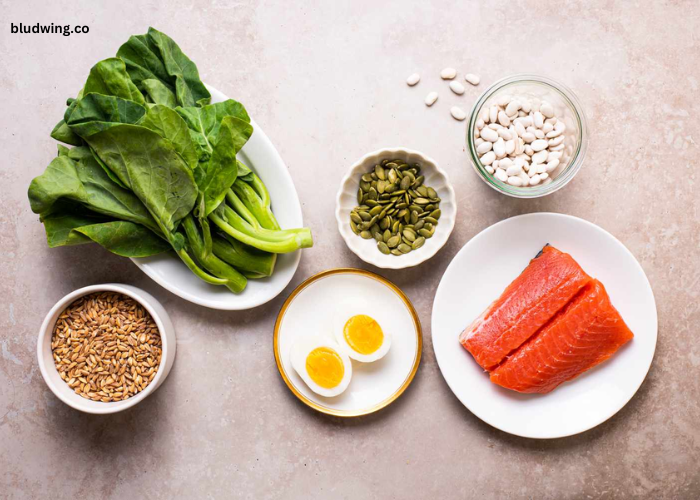Living a healthy life is all about maintaining a balance between physical activity and proper nutrition. Exercise and nutrition are the two cornerstones of a healthy lifestyle, and they play a vital role in improving your overall well-being. Both exercise and good nutrition support the body’s essential functions, enhance energy levels, and prevent chronic illnesses. Together, they create the foundation for a strong and healthy body, mind, and spirit.
Exercise helps the body stay strong, maintain an optimal weight, and improve cardiovascular health, while proper nutrition provides the necessary fuel and nutrients to keep the body functioning efficiently. In this article, we’ll explore the top reasons why exercise and proper nutrition are key to a healthy life.
Key Points:
- Regular exercise improves physical fitness, heart health, and mental well-being.
- Proper nutrition boosts the immune system, supports digestion, and maintains energy levels.
- Together, exercise and nutrition help prevent chronic diseases and promote longevity.
How Does Exercise Benefit Your Health?
Exercise is one of the most powerful tools you can use to improve your health. Whether you prefer walking, swimming, cycling, or strength training, regular physical activity has countless benefits for your body and mind.
1. Improves Cardiovascular Health
One of the most important benefits of exercise is its positive effect on heart health. Regular physical activity strengthens the heart, improving its ability to pump blood efficiently. It also lowers blood pressure, reduces cholesterol levels, and improves circulation. These benefits decrease the risk of heart disease and stroke.
For example, activities like running, cycling, and swimming are great for improving cardiovascular endurance. As your heart becomes stronger, it can deliver oxygen and nutrients to your muscles more effectively, leading to better overall health.
2. Helps Control Weight
Exercise plays a crucial role in maintaining a healthy weight. Regular physical activity helps you burn calories, which is essential for weight management. It also helps regulate metabolism and can improve muscle mass, which increases the number of calories your body burns even when you’re at rest.
Incorporating both aerobic exercise (like walking or running) and strength training (such as lifting weights) is the most effective way to burn fat, build muscle, and keep your metabolism running at optimal levels.
3. Boosts Mental Health
Physical activity isn’t just good for the body; it’s also great for the mind. Exercise stimulates the production of endorphins, the “feel-good” hormones that improve mood and reduce feelings of stress and anxiety. In fact, regular exercise has been shown to be as effective as medication for treating mild to moderate depression.
Exercise also helps to reduce stress by lowering levels of cortisol, a hormone released during times of stress. By incorporating physical activity into your daily routine, you can significantly improve your mental clarity, mood, and overall emotional well-being.
Table 1: Top Benefits of Exercise for Physical Health
| Benefit | Description | Example Activities |
|---|---|---|
| Cardiovascular Health | Strengthens the heart and improves circulation | Running, swimming, cycling |
| Weight Control | Helps burn calories and regulate metabolism | Walking, HIIT workouts, strength training |
| Mental Health Improvement | Boosts mood and reduces stress | Yoga, dancing, team sports |
| Increased Strength & Flexibility | Builds muscle mass and improves flexibility | Pilates, weight lifting, stretching |
How Does Proper Nutrition Support a Healthy Life?
Proper nutrition is essential for maintaining good health and ensuring that the body functions properly. A well-balanced diet provides the nutrients needed for energy, immune support, and overall bodily function. Here are some key reasons why nutrition is just as important as exercise:
1. Provides Essential Nutrients
The body needs a variety of nutrients—such as carbohydrates, protein, fats, vitamins, and minerals—to function properly. A balanced diet that includes a variety of whole foods ensures that you’re getting the essential nutrients your body needs. For example, fruits and vegetables provide antioxidants that protect the body from oxidative stress, while protein helps repair and build tissues.
Nutrient-dense foods, such as leafy greens, whole grains, and lean proteins, help maintain energy levels throughout the day and prevent deficiencies that can lead to health issues.
2. Supports the Immune System
A well-balanced diet strengthens the immune system, helping the body fight off infections and illnesses. Nutrients like vitamin C (found in citrus fruits), zinc (found in nuts and seeds), and vitamin D (found in fortified dairy and sunlight exposure) are essential for immune function. A proper diet ensures that the body has the tools it needs to protect itself.
For example, eating a variety of colorful fruits and vegetables helps boost your immunity and provides essential vitamins and minerals that the body needs for optimal function.
3. Promotes Healthy Digestion
Proper nutrition also supports digestive health. A diet rich in fiber—found in whole grains, fruits, and vegetables—promotes healthy digestion and prevents constipation. Fiber helps regulate bowel movements, keeps the gut bacteria balanced, and supports a healthy digestive tract.
Additionally, probiotics found in foods like yogurt and fermented vegetables help maintain gut health by supporting the beneficial bacteria in your digestive system.
Table 2: Essential Nutrients for a Healthy Life
| Nutrient | Function | Food Sources |
|---|---|---|
| Carbohydrates | Provide energy to the body | Whole grains, fruits, vegetables |
| Protein | Repair and build tissues | Lean meats, beans, tofu, dairy |
| Fats | Support brain function and energy | Avocados, nuts, olive oil |
| Vitamins & Minerals | Boost immune function and support growth | Citrus fruits (Vitamin C), dairy (Vitamin D), spinach (Iron) |
How Do Exercise and Nutrition Work Together for a Healthy Life?
Exercise and nutrition are not isolated factors but work synergistically to promote optimal health. When combined, they create a balanced lifestyle that improves both physical and mental well-being.
1. Maximizing Exercise Performance
Proper nutrition is essential for fueling exercise. Before a workout, consuming a balanced meal with carbohydrates and protein provides energy and helps build muscle. After exercise, eating a meal or snack with protein helps repair muscle tissue and replenish glycogen stores. Without adequate nutrition, the body cannot perform at its best or recover effectively.
For instance, having a banana or a protein shake before a workout can provide the energy you need, while eating chicken and quinoa afterward can help with muscle repair.
2. Supporting Long-Term Health Goals
Consuming the right foods and exercising regularly can help prevent chronic diseases such as heart disease, diabetes, and obesity. Both exercise and proper nutrition work together to maintain a healthy weight, reduce inflammation, and improve heart health. Consistently following a healthy diet and exercise routine is key to preventing disease and promoting longevity.
Conclusion: The Importance of Exercise and Proper Nutrition for a Healthy Life
Exercise and proper nutrition are two of the most important factors in living a healthy, vibrant life. Regular physical activity strengthens the body, improves mental health, and helps control weight, while good nutrition provides the necessary nutrients to fuel your body, support immunity, and maintain energy levels. Together, exercise and nutrition create a powerful combination that promotes overall health and well-being.
By prioritizing both exercise and proper nutrition, you can improve your quality of life, increase longevity, and reduce the risk of chronic diseases. Start today by incorporating healthy habits into your daily routine, and enjoy the many benefits of a balanced, healthy lifestyle.
FAQ’s
1. How often should I exercise for optimal health?
For optimal health, aim to exercise at least 30 minutes per day, most days of the week. Incorporate a mix of cardio, strength training, and flexibility exercises.
2. What should I eat before and after a workout?
Before a workout, eat a meal with carbohydrates and protein to fuel your body. Afterward, consume protein to help repair muscles and replenish energy stores.
3. Can nutrition alone improve my health?
While proper nutrition is essential for overall health, exercise plays a complementary role in improving cardiovascular health, muscle strength, and mental well-being.
4. How can I improve my digestion through nutrition?
Incorporate fiber-rich foods such as whole grains, fruits, and vegetables into your diet to support healthy digestion and prevent constipation.
5. What are the best foods for boosting immunity?
Foods rich in vitamin C (such as citrus fruits), vitamin D (such as fortified dairy), and zinc (such as nuts and seeds) are excellent for boosting the immune system.




